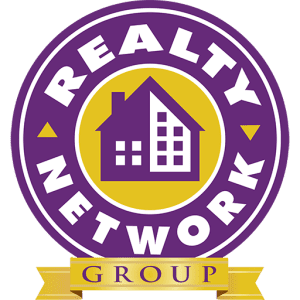When looking for a new apartment, home or condo/townhome to lease, there are several red flags that might disqualify it from consideration. Does one of these eliminate it from your list? Perhaps not, but when a few of them converge, you should probably look elsewhere. Here are 10 common problems that could make an apartment unsuitable for tenancy:
Persistent pest infestations
Apartments plagued with pests like cockroaches, silverfish or rodents can be a nightmare to live in and are a clear sign of poor maintenance. When viewing a property it’s important to keep your eyes out for nesting materials that rodents might make use of, such as insulation, cotton, shreds of paper, etc. If you discover dead insects of the same species around window sills and door frames, there might be an insect problem on site. Other signs to watch out for include mouse tracks and/or droppings as well as evidence of wood damage (holes and hollow-sounding wooden surfaces).
Safety concerns
Issues like faulty wiring, non-functioning smoke detectors or inadequate security measures pose significant safety risks and should not be ignored. As we like to remind tenants or prospective buyers, we’re not home inspectors nor do we pretty to play one, but sometimes there are clearly visible signs like smoke detectors and carbon monoxide detectors missing their covers and/or batteries. Another suspicious sight is when an apartment is dotted with exposed wires.
Water damage and leaks
In real estate, we say water is usually our biggest headache. It certainly has the potential to be. Apartments with water stains, musty smells or visible signs of leaks indicate potential mold growth, structural issues and water damage that can affect your health and belongings. Let your nose be your guide as you preview a home. Are there any distinct odors you notice? Does the air in certain rooms or the basement appear to be filled with more moisture? Water can pose a real threat to those occupying a home, so it’s important to stay alert to potential water issues.
Inadequate heating or cooling systems
Apartments lacking proper HVAC systems or with dysfunctional heating or air conditioning units can make living conditions uncomfortable and unpleasant. In Northeastern Pennsylvania, there are winters that can be harsh and quite cold. If the heating system doesn’t appear to have been serviced in some time or looks rundown, the system might not be efficient and the cold months could be somewhat unbearable.
Excessive noise levels
If an apartment is situated in a noisy neighborhood near busy roads, bars or construction sites and doesn’t provide soundproofing measures, it could disrupt your peace and quality of life. We always recommend that our clients, whether they be homebuyers or tenants, visit the neighborhood they’re considering at various points throughout the day (and at night too!). They’ll want to have a good understanding of the traffic situation, both in-person and vehicle traffic. Some of our clients aren’t disturbed by noise, but others find any elevation to be upsetting.
Insufficient storage space
Lack of adequate storage within an apartment can make it challenging to organize belongings and may lead to a cluttered living space. Certain clients or families have a lot of stuff and would rather not rent out a self-storage unit if they don’t need to. Small room sizes, lack of closets or a suitable basement/attic space can really put the damper on attracting tenants who need space for their possessions.
Damaged or worn-out amenities
If shared amenities like elevators, laundry facilities or parking areas are poorly maintained or in constant need of repair, it can cause inconvenience and frustration. In some of our buildings that serve condominums, the condition of amenities can be a game-changer. Even HOAs can play a role in this facet of the rental market. Some people depend on these and are willing to pay for these services, but if these amenities appear to be on the fritz, they would be better resuming their search elsewhere.
Poor management and communication
Frequent communication gaps, unresponsive management or unaddressed tenant concerns indicate a lack of professionalism and may lead to ongoing issues. In our business, a breakdown in communication helps no one. When miscommunication occurs, chances are good if something becomes an issue, it probably snow-balled into something much bigger. Responsive landlords, tenants and agents help to address any potential issues before they might get out of hand.
Accessibility issues
For individuals with mobility challenges, apartments that lack proper wheelchair accessibility features or have many flights of stairs can be impractical or even unsafe. Renters with disability issues can ask for a more accessible unit or request that accommodations be made to their unit. These accommodations should be reasonable and the renter, in most cases, would both cover the cost for the modifications as well as restoring the space to its prior state before those alterations were made. It’s important to know what your rights are as a tenant, if you have accessibility problems and require support.
Unreliable or absent maintenance services
If the apartment complex fails to provide timely maintenance or lacks a dedicated team, it can result in prolonged inconvenience and compromised living conditions. The landlord should be handling any maintenance required on their property, while keeping in mind — great tenants are hard to find. If they notify the landlord of a legitimate, ongoing issue, the owner should be prompt in resolving the matter.
Considering these ten problems can help tenants avoid potential frustrations as they seek safe environments to live.
Heather A. Luklanchuk, REALTOR®
Realty Network Group
